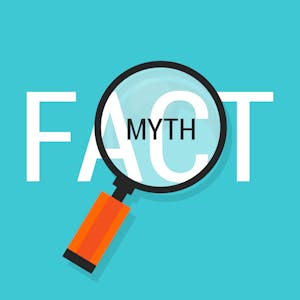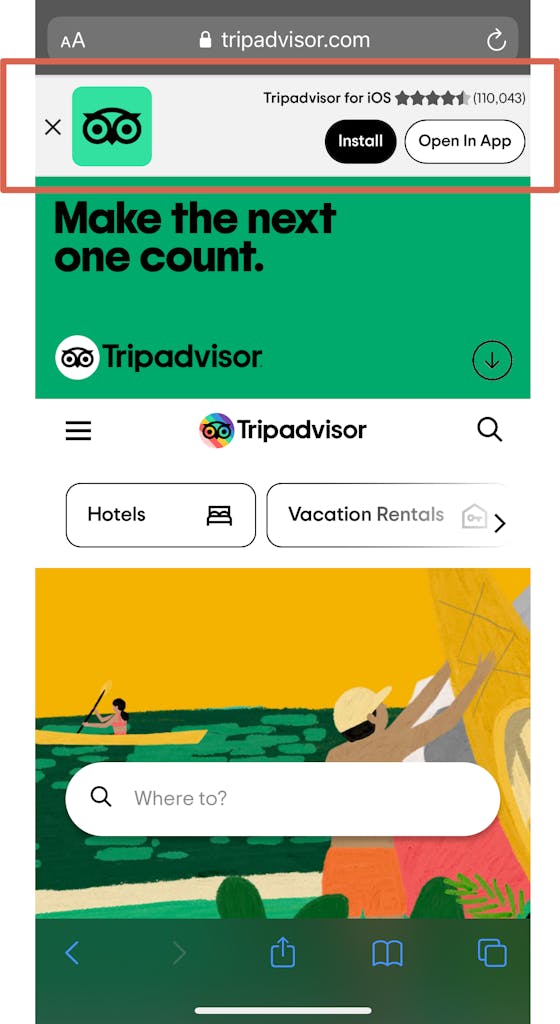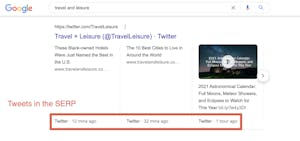- 11 minute read
- Social Media
All Skill Levels
Get a behind-the-scenes-look into FareHarbor's 2024 season

Misinformation is unfortunately common in the world of SEO. From buying backlinks to using exact-match keywords, SEO misconceptions can be confusing and distract you from the main goal of SEO – to drive more visitors to your website through useful, quality content. Some SEO myths are pretty believable, but we’re here to set the record straight and debunk these four common misconceptions.
 Reality: Pop-ups work when used correctly.
Reality: Pop-ups work when used correctly.You may have heard that pop-ups negatively impact your site’s ranking. But that’s not a blanket statement. It’s true that Google started penalizing websites with intrusive pop-ups back in 2017. However, that was only the case for websites using excessive pop-ups that completely block page content or impede a site visitor’s ability to access page content on mobile.
Pop-ups like banners and slide-ins that don’t disrupt the mobile user experience are acceptable. As a general rule of thumb, if users don’t have to dismiss or close the pop-up before being able to access the main page content, it’s okay to use the pop-up.
In this example from Tripadvisor, the banner pop-up to download their app is easy to close and does not block the main page content on mobile.
You’ve done your keyword research and you’re ready to optimize your web pages. You’ve probably noticed that some keywords seem easy to fit into your content, while others seem a bit unnatural. One of the most common misconceptions about keyword strategy is that your keywords must be an exact match, repeated verbatim throughout a piece of content.
In reality, the more naturally you use keywords, the better. Repeating exact match keywords makes your writing sound awkward and repetitive. Instead, make sure keywords (or key phrases) fit so naturally into your content that readers aren’t even aware of them.
If you’re worried about ranking for a particular keyword, remember this: Google is continually mastering semantic search, which allows the search engine to understand which pages to show on the SERP even if its keywords aren’t an exact match to the query.
If you need more tips on how to write naturally while addressing the needs of your audience, read up on writing for search intent.
Google’s 2011 Panda update targeted duplicate, plagiarized, or thin content, among other issues. Since then, misinformation has circulated about duplicate content, specifically that any site with duplicate content would be penalized by Google.
However, it’s pretty difficult for any website to have entirely unique content on every page. For example, your website might repeat an FAQ section or important tour policy information on several pages. Before you start worrying too much about getting penalized, know that Google’s John Mueller has stated that it’s normal for sites to have a certain level of duplicate content.
When multiple pages with a lot of duplicate content appear in the search results, in some cases Google just won’t show them. You’ll see a message like this:

So although you won’t get penalized, if you intended for the omitted page to rank, you must write unique content in order to get page views. Don’t forget to check out this guide on duplicate content with great tips on how to avoid it.
You’ve probably seen us mention the importance of social media for engaging with your customers and building your online presence. But have you ever wondered if social signals were a ranking factor?
There’s a popular SEO myth out there that says social signals – a webpage’s collective likes, shares, and social media visibility on the SERP – have the ability to improve your search rankings. You may have seen individual pieces of content or things like Tweets show up on the SERP. While it’s true that building a presence on social media can help drive users to your website, social signals alone are not a ranking factor.

Unfortunately, people and businesses trying to promote their social media can buy followers and likes – a practice we strongly advise against. Google recognizes that this is not a legitimate way to drive page views, so even though individual pages can appear in its index, they won’t really impact your rankings.
It can be frustrating if you’re just starting out on social media and trying to grow a following, but these things take time. When you interact in a natural way with your target audience, they’re more likely to share your content. Look into using hashtags and trying out these 10 tips to grow your social media following.
If so, you’re not alone. SEO is always changing along with Google algorithm updates and other search engine innovations, so it can be hard to know what’s right. As a general rule of thumb, if a tactic seems too easy – like simply repeating keywords over and over – it’s likely one you should avoid. Effective SEO work that will improve your search rankings takes time, and you can’t expect to see changes overnight from something as quick as buying social media followers.
Rest assured, you can always find the latest SEO tips in our helpful SEO guides.